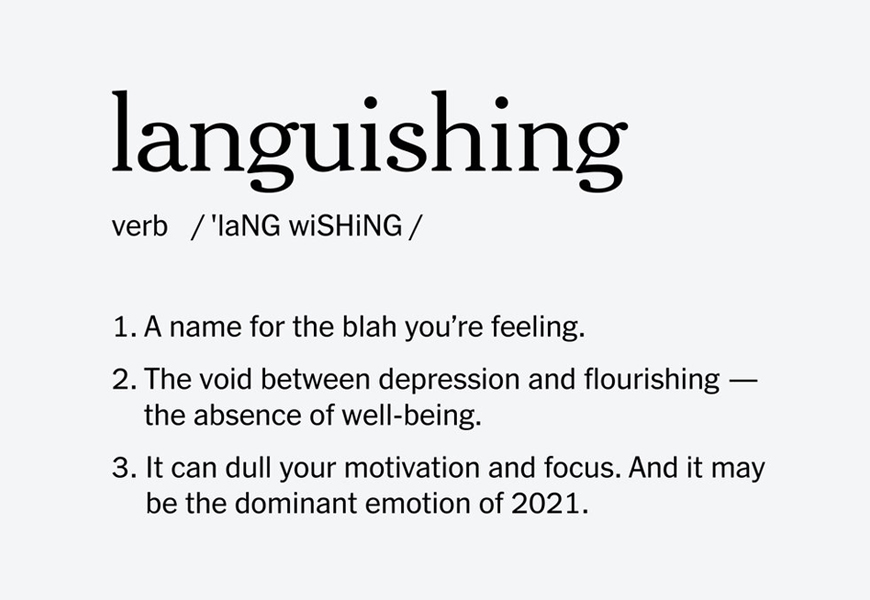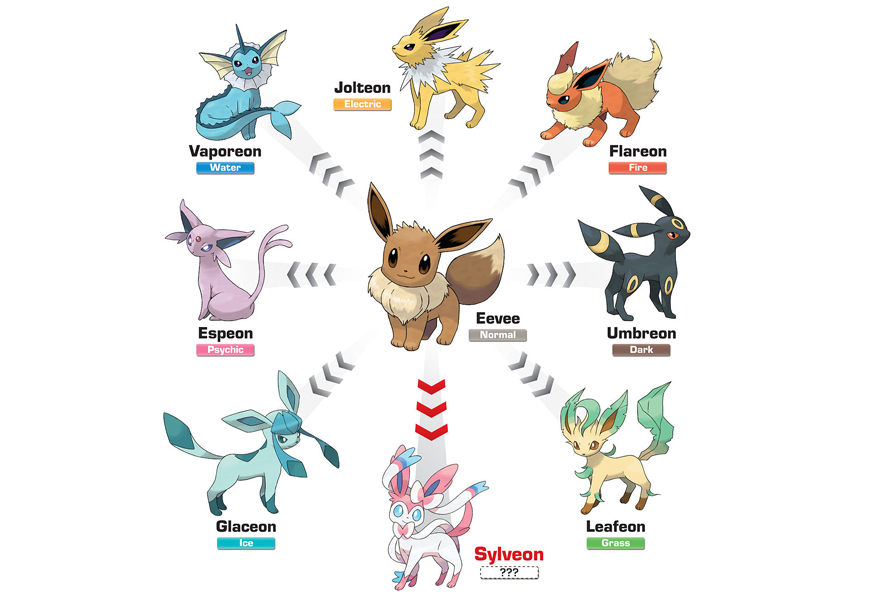To say that this pandemic has had its challenges would be an understatement. As scientists and physicians work to treat and cure the physical symptoms of long-haul Covid-19, many people are struggling with the emotional long-haul of the pandemic. The feeling that we are devoid of promise, purpose and delight.
In a recent article for The New York Times, Wharton organizational psychologist Adam Grant puts a name to those feelings of aimlessness and futility that many people began experiencing as we kicked off 2021: “languishing.” Languishing is a sense of stagnation and emptiness. It feels as if you’re muddling through your days, looking at your life through a foggy windshield. And, it might be the dominant emotion of 2021.
Languishing is a callback to research published by a sociologist named Corey Keyes nearly 20 years ago. It is the neglected middle child of mental health and it’s a feeling that’s tough to define, unlike “depression” or “flourishing.” When someone is languishing s/he has neither hit rock bottom nor achieved some sort of work-life nirvana. They’re bopping around somewhere in the middle, though trending in the direction of depression.
Here’s Keyes’ original definition: “A state in which an individual is devoid of positive emotion toward life, and is not functioning well either psychologically or socially, and has not been depressed during the past year. In short, languishers are neither mentally ill nor mentally healthy.”
The endless, grinding anxiety associated with the pandemic has left us all some way off peak performance, unable to focus or concentrate. But, languishing was a silent epidemic in North America long before the arrival of the pandemic. The fact that we didn’t talk about it (or that most didn’t have a name for it) is a sobering testament to our society’s ongoing struggle with normalizing mental health conversations. But so many of have experienced it, especially throughout the last few months.
Think about mornings you’ve spent an extra hour in bed, any time that you have abandoned a hobby or project, or the times that you’ve felt indifferent about your prospect of promotions, post-pandemic travel, family functions. Languishing sneaks up on you — it’s coasting, but without the easy breezy attitude. It thrives when we lose our focus and then lose the will to regain our focus.
What can you do to combat it? Calling it by name is an excellent first step. This can put a stage light on its presence in your life. According to the NYT article, the secret to combating languishing lies in the pursuit of the “just manageable difficulty”. Try to source the symptoms of your own languishing (e.g. Have you stopped walking? Reading? Cooking?) while identifying habits that could pull you back to where you deserve to be.
Grant also recommends finding states of “flow.” These are pursuits (from hanging out with friends to playing the piano) that take you out of yourself. They bend time and place, in the best way. Creating a sense of routine is also recommended. Fill out a calendar, fill out a journal. Schedule meals. Go to bed at the same time every night.
This worldwide pandemic has taken so much from all of us, and for some, the final twist of the knife has been a loss of self. We don’t recognize ourselves, and down the line, that could lead to real scenes of mental illness, perhaps even a major depressive episode. Don’t expect to find excitement and excellence right away, but with a bit of intent, you can climb out of languishing’s purgatorial holding bay and get yourself right again.












